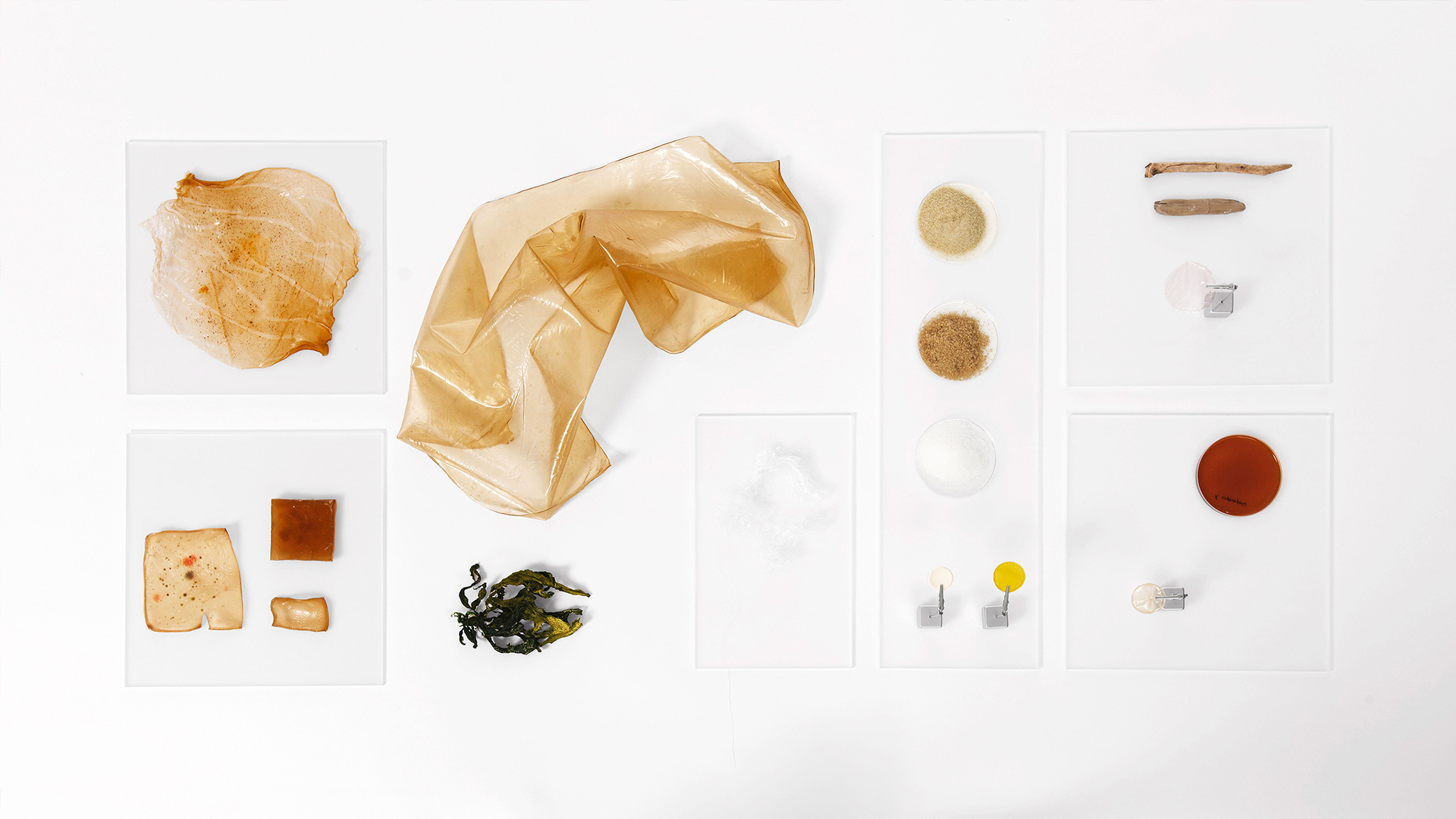We need to decrease our dependence on fossil raw materials, improve our use of resources, and increase plastics recycling and reuse. Simultaneously we need to prevent plastics from polluting and leaking into our environment.
The exhibition Materiality & Aggregation – five pathways to a more sustainable plastic society has its starting point in a discussion brief brought forward by the research programme STEPS, Sustainable Plastics and Transition Pathways on how to face society’s major sustainability challenges related to plastics.
Plastics have an important role to play in a more sustainable future through their material properties and their functionality in different applications, but the problems of plastics must also be decisively addressed.
The five pathways – reduce use, recycle more, fewer types, biobased plastics and biodegradable plastics – are interpreted separately in the exhibition, but all together they will be crucial in the transition towards a more sustainable plastic future.
Scientists / Producer: STEPS (Sustainable Plastics and Transition Pathways) is a research programme with a vision of a future society in which plastics are sustainably produced using biobased raw materials which are used and recycled in a circular economy. The programme is coordinated by Lund University and funded by Mistra, the Swedish Foundation for Strategic Environmental Research. www.steps-mistra.se
Designer / Exhibition design / Curator: Kajsa Willner
Graphic identity: Daniel Christiansen
Special thanks to: Johanna Sjögren Duthy & Maria Viweg for input on the text, and Victor Modin & Isabelle Magnusson as interns helping out with the production of the exhibition.
Collaborators/Sponsors: Tarkett | Rondo | General Plastic Scandinavia AB | HF Industri & Marine | VINK essåplast Group AB
